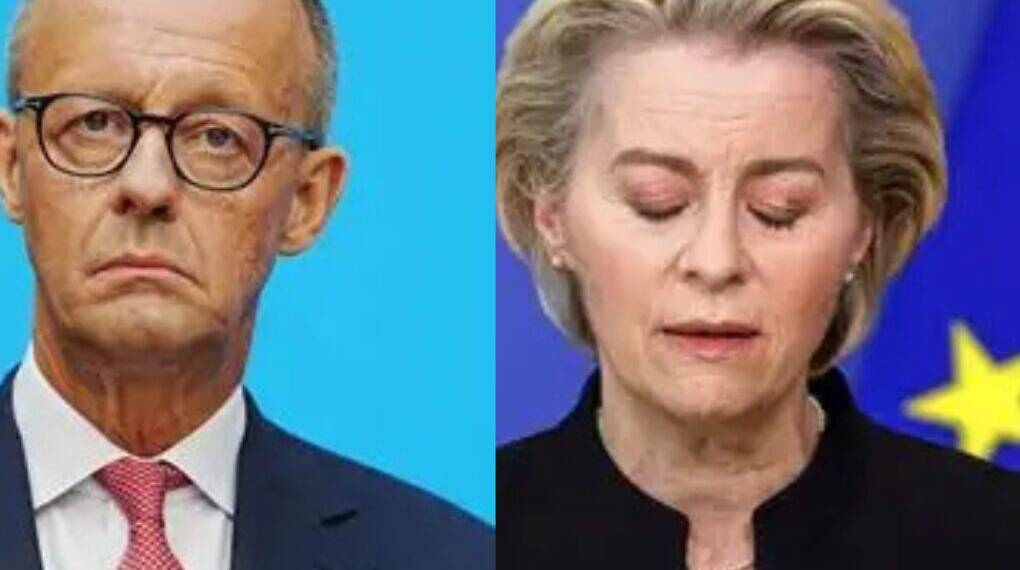As the first chills of autumn descend on Europe, the continent braces not only for winter weather but for an economic cold front that could test its unity, priorities, and endurance. Germany’s economy alone could face losses exceeding €40 billion if the coming winter proves severe and natural gas reserves dip too low.
The number may sound abstract, but behind it lies a web of policy decisions — from the cutoff of Russian gas to the ongoing financial commitment to Ukraine — that have transformed Europe’s energy landscape, industrial base, and political stability.
From Nord Stream to No Stream: The Gas Gamble that Backfired
Before 2022, Europe’s energy equation was simple: Russia provided around 40% of the EU’s natural gas, much of it flowing through the Nord Stream pipelines into Germany. The relationship was transactional — cheap, reliable gas in exchange for European markets and technology.
That arrangement ended abruptly with Russia’s invasion of Ukraine, EU sanctions, and the September 2022 sabotage of the Nord Stream pipelines — an act confirmed by Swedish investigators as deliberate but still officially unsolved.
The immediate financial cost of the explosions was estimated between €9 billion and €15 billion, but the long-term damage was incalculable. The destruction of Nord Stream didn’t just sever a pipeline; it severed Europe’s most affordable energy lifeline.
In the following months, Germany and its neighbors scrambled to secure liquefied natural gas (LNG) from the United States, Qatar, and Norway. New terminals, such as the one in Wilhelmshaven, were completed at record speed. Yet, the new gas came at triple the price of Russian pipeline supplies. For a while, mild winters masked the pain — but as 2025 draws to a close, storage tanks are at 75–83% capacity, well below the safety threshold experts recommend before a cold season.
According to Frontier Economics and Uniper’s latest models, a cold winter could increase gas demand by 20–30%, slashing industrial output and pushing Germany’s economy into another contraction. Losses of €40 billion, or roughly 1% of GDP, are projected in the worst-case scenario.
Germany’s Deindustrialization: From Economic Engine to Exhausted Machine
For decades, Germany was the engine of European prosperity — its manufacturing strength drove exports, jobs, and the eurozone’s stability. That dominance is now eroding.
Since cutting itself off from Russian energy, Germany has experienced back-to-back recessions (–0.3% in 2023 and –0.2% in 2024). Energy-intensive sectors like chemicals, metals, and automotive manufacturing have suffered most. BASF, the chemical giant, lost billions and began relocating operations to the United States and China, where energy is cheaper and more stable. ThyssenKrupp has downsized. Volkswagen is shifting production to Mexico and North America.
Industrial output has dropped 5% year-on-year, while energy costs have risen 30% since 2022. The federal government’s decision to shut down its last nuclear plants in 2023, coupled with sluggish renewable deployment, has further strained supply.
As a result, Germany’s once-vaunted “Energiewende” — the green energy transition — has become both a symbol of ambition and a source of vulnerability. When wind speeds fall or solar output dips, coal and imported LNG fill the gap, undermining the very climate goals Berlin champions on the global stage.
Economists warn that this is not a cyclical slowdown but a structural transformation — or, as some put it bluntly, deindustrialization. The Bundesbank has already cautioned that a harsh winter could drive up import costs by nearly 20%, pushing Europe’s largest economy further into stagnation.
France on the Fiscal Edge: Bailout Fears Resurface
If Germany’s challenge is industrial, France’s is fiscal. Paris is walking a tightrope between rising public debt and social unrest. National debt has climbed to 112% of GDP and could reach 130% by 2026. The government’s budget deficit — currently around 5.5% — is the highest in the eurozone, and bond yields are approaching levels last seen during the 2011 sovereign debt crisis.
The cost of servicing France’s debt is projected to hit €75 billion annually by 2026, crowding out spending on growth and social programs. Meanwhile, President Macron’s austerity measures — pension reforms, tax increases, and cuts to public services — have triggered repeated waves of strikes and protests.
France’s nuclear power advantage, often touted as its energy shield, has faltered as aging reactors require costly maintenance. When several units go offline, France is forced to import electricity or natural gas — often from Germany, which itself faces shortages.
The result is an uneasy dependence: a financially strained France relying on an energy-fragile Germany, both bound by EU fiscal rules and climate targets that limit policy flexibility.
Inflation’s Lingering Grip and the Stagnation Trap
Across the continent, inflation has slowed — but not disappeared. The eurozone’s inflation rate stands at 2.1%, near the European Central Bank’s target, yet the underlying pressures remain. Core inflation, excluding food and energy, remains above 2.3%, while Eastern European nations like Romania still report rates above 8%.
Energy volatility continues to ripple through supply chains, wages, and consumer confidence. A cold winter could push gas and electricity prices up again, rekindling inflationary fears just as central banks contemplate easing monetary policy.








